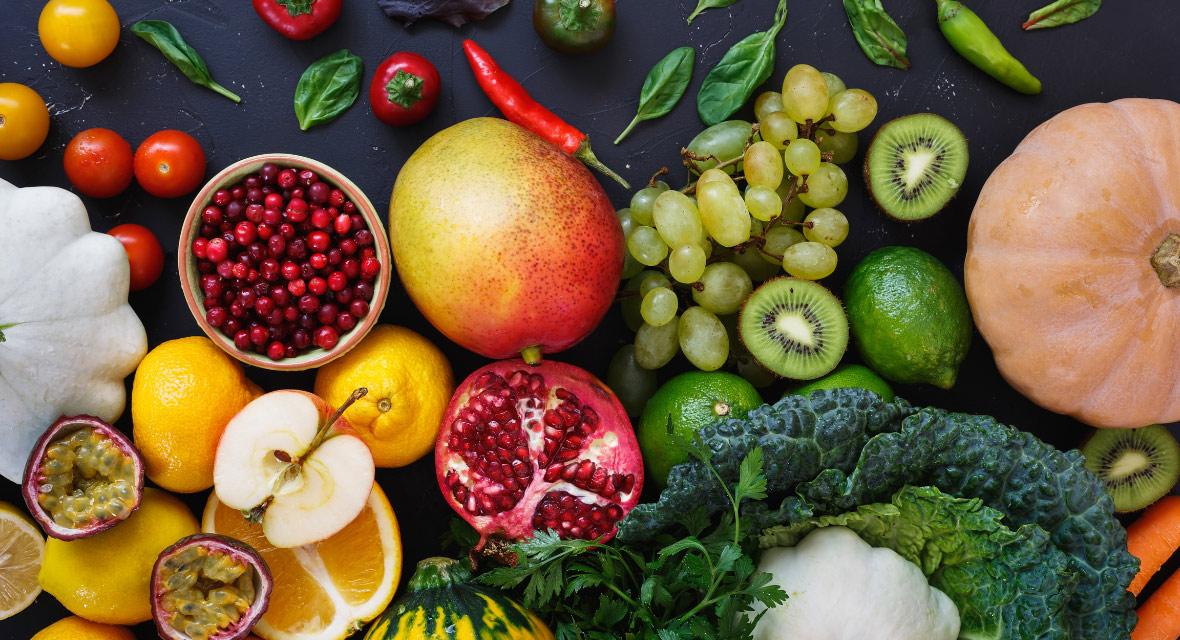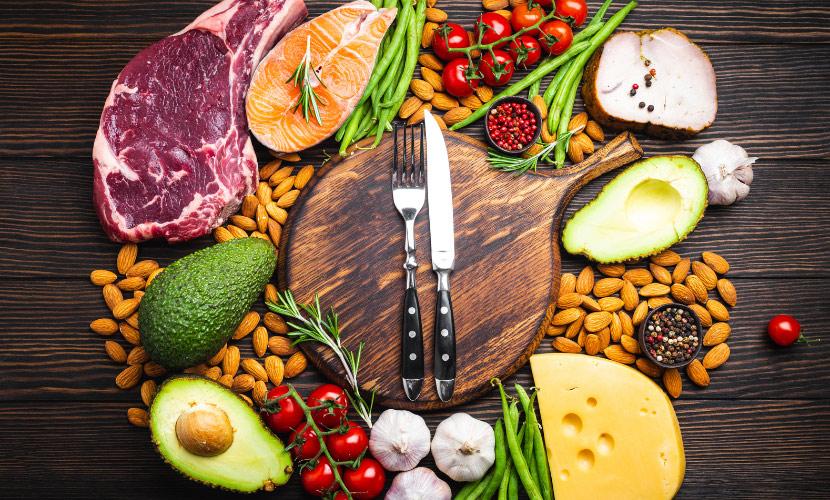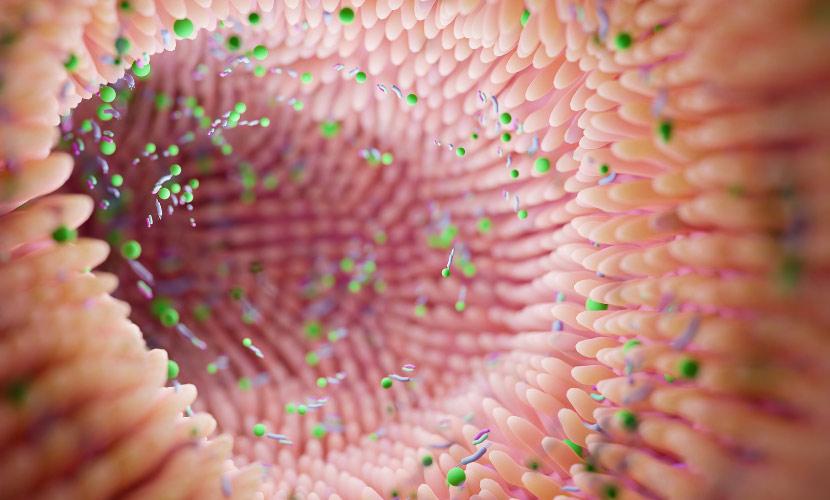🔥 Hot Days, Cool Meals – 20% Off on 4-Week Plans Only! 🔥
CODE: VM20

11 Facts about Nutrition That We Ignore
11 Nutrition Myths and Facts That We Generally Ignore
Most of our dietary beliefs are derived from what we have been taught over generations or via media exposure. This also implies that if there is a misunderstanding about it, it will persist because we don't bother to double-check facts most of the time.
Some of you may have a dietician or nutritionist who advises you on your dietary needs, but those who can't afford or don't have the time to employ one may receive the information they need here.
From debunking some popular dietary fallacies to providing you with some overlooked tips for meeting your body's nutritional needs, we've got you covered.
Facts about Nutrition You Need to Know
Don't Be Afraid of Cholesterol
Cholesterol gets a poor reputation every time it comes up in a conversation because of the negative connotations it carries. However, the cholesterol that individuals believe to be their adversary is not cholesterol in itself. Confused?
People frequently discuss harmful versus good cholesterol, with the former being Low-Density Lipoprotein (LDL) and the latter being High-Density Lipoprotein (HDL). When doctors tell you that cholesterol levels have risen, they do it in a way that non-specialists can comprehend.
The main problem is not cholesterol but the type of protein that carries the cholesterol in your body.
Weight is Not the Ultimate Determinant of Being Healthy
The obsession that people have with weight gain and weight loss needs to be addressed. What most individuals don't know is that excellent health isn't simply about maintaining a healthy weight.
There are overweight but metabolically healthy people, and there are others who are the perfect weight yet have serious metabolic problems, for which they need to work on increasing their metabolism. This is why focusing just on body weight is counterproductive.
It is possible to improve ones health without shedding a lot of weight, and vice versa. These two things don't have to be incompatible. Instead, you should concentrate on decreasing abdominal fat (belly fat), which causes severe metabolic problems. The fat that lies beneath your skin is not your greatest foe.

For Keto, You Don't Have to Completely Avoid Carbohydrates
Some people are afraid to go on a keto diet because they feel they can't handle giving up carbs completely all of a sudden. Well, this is a myth.
Of course, you need to minimalize your intake of carb count if you adopt a keto diet, but it doesn't mean that you have to remove it altogether. In an ideal keto diet plan, proper proportions of minimal carbs are encouraged to keep an appropriate balance of all nutrients in your body.
You Don't Need to Eat Small Meals Every 2-3 Hours
Some people opine that consuming small portions of food every 2-3 hours instead of having usual wholesome meals at the designated time of breakfast, lunch, and dinner would help them lose weight.
However, studies have shown that minimizing the portion of your meal or increasing your meal frequency does not affect your fat-burning capacity. Eat whenever you are hungry or during the ideal breakfast, lunch, and dinner times.
Vegan Diets are Fulfilling Enough
Many non-vegetarians and even vegetarians have a common misconception about vegans that veganism is not ideal since vegan meals are not fulfilling enough.
However, they couldn't be more wrong since there is no distinction in the satiety aspect between soy-based products and meat-based products. A proper vegan meal plan in Dubai ,can keep you as healthy as those who consume meat.
Your Body is Capable of Digesting Meat; It Doesn't Rot There
There is a belief that the human body cannot digest meat, and it simply rots in your colon. This leads to many people refusing to consume meat. However, this is entirely false since the human body is perfectly capable of digesting meat and absorbing the nutrients from it.
The stomach acid present in your stomach helps break down the protein, and the rest is broken down by the digestive enzymes present in your small intestine. So, feel free to consume meat, but of course, in moderate quantity.
Packaged Fruits Juices Aren't the Healthiest Options
Many people kick-start their day with a glass of fruit juice since they believe it is a healthy way to begin their day as it comes from fruit. But what people fail to realize is that the fruit juices that we buy from the market are heavily processed.
They are, in fact, not much different from sugary soft drinks. Ideally, you should consume fruits instead as you get the added benefit of fiber from them.

Gut Bacteria is Your Friend
Not all types of bacteria found in your body are harmful. The bacteria found in your intestine, known as the gut flora, have beneficial effects on your health. Their presence is significant for your health to persevere.
Therefore, you need to feed them, and they are dependent on soluble fiber. As such, include soluble fiber such as beans, peas, lentils, barley, nuts, and oat bran in your diet.
Vegans Have Enough Milk Options
Milk is the ultimate balanced diet and is something that is considered to be an absolute necessity for everyone. Owing to the nature of veganism, many people believe that vegans are at a disadvantage since they don't have enough milk options.
Well, this is untrue since although they can't consume animal milk, there are plenty of plant-based milk options for them to choose from. This includes rice milk, oat milk, almond milk, coconut milk, soy milk, etc.
Low-fat food Doesn't Necessarily Mean Healthy Food
Low-fat foods have been popular for several years because many people feel they are the most effective way to lose weight. However, you might be surprised to learn that they neither aid in weight loss nor serve as illness-preventive measures. As such, some low-fat food items are bad for your health.
Since foods taste bad without including fat, manufacturers add sugar and other additives to their food to compensate for the lack of taste. And you know how processed food can harm our bodies.
If you want to have low-fat food, then go for those naturally low in fat options, such as fruits and vegetables.
Vegetarians and Vegans Have Enough Sources of Vitamin B12
Vitamin B12 is an important vitamin that our systems require. Vegetarians and vegans may appear to be deficient in Vitamin B12 at first impression. However, this is the consequence of an unconfirmed rumor.
To begin with, if you are an eggetarian or a vegetarian who eats eggs, you don't need to worry because eggs will meet your Vitamin B12 needs. If you don't have eggs, milk can help you achieve the same results. Tofu, cereals, and other non-dairy milk are all excellent sources of Vitamin B12 for vegans.
Final Thoughts
We humans often have a habit of not questioning enough when it comes to age-old myths and misconceptions. As such, we lose out on so much as is evident from the list mentioned above.
out there, do your research, start questioning, and keep on busting the myths and misconceptions associated with your food and nutrient requirements and give yourself aSo, go out there, do your research, start questioning, and keep on busting the myths and misconceptions associated with your food and nutrient requirements and give yourself healthy meal plans from VMeals monthly healthy meal plan in Dubai and all across the UAE.
Reach out to start your fitness journey with us!
Meal Plans
Delivery Details
Legal Information
© 2020-2024 VMeals. All rights reserved. VMeals™ is a trademark of Flip Side Restaurant and Cafe L.L.C
We accept
